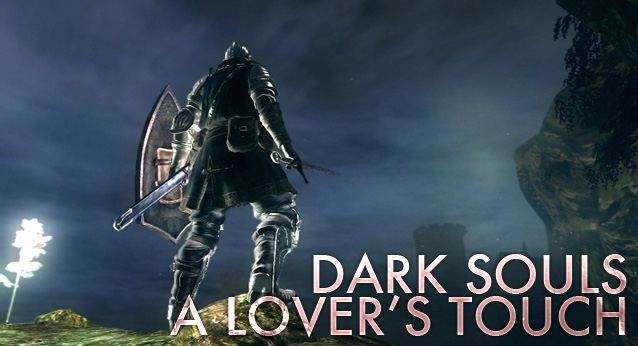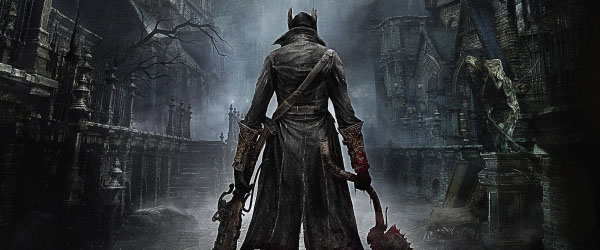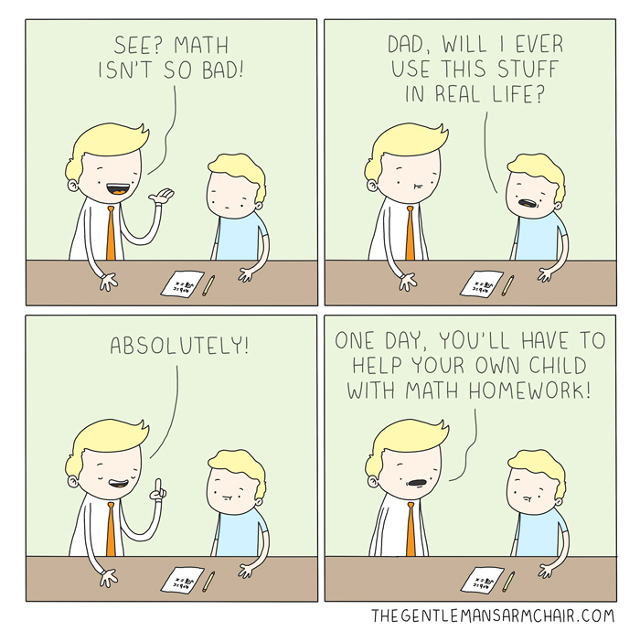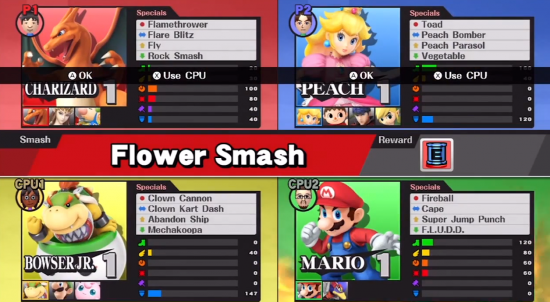


Dark Souls is a challenging game. Dark Souls wants to dominate you. Dark Souls does not care about you. These are things that have been written about a game that seems designed to mentally break you. Yet there is a side to the game that is a welcome inclusion to draw one back from the brink of insanity while playing.
Dark Souls is ostensibly a single player game, yet it includes a smattering of online interactive components that serve to enhance the experience of what is already a great game. This is not the first game (or first in this somewhat series) to do it, yet how Dark Souls implements this aspect is a wonderful example of refined understatement.
...the touches added to Dark Souls are the fleeting gentle caresses of a lover you know little about. Never there for long, but leaving a desire for more.The Peter Molyneux overhyped and overpromised Fable III is a game that attempted similar online interaction in a single player experience, yet there is a distinct difference between the two.
Fable III’s attempt was akin to the clumsy, heavy handed pawing of a lover returning from an all-night drinking session, with its glowing player orbs and constant stat reminders. Whereas the touches added to Dark Souls are the fleeting gentle caresses of a lover you know little about. Never there for long, but leaving a desire for more.
These touches manifest themselves in many ways, but the single overriding component is that they are ephemeral and give away very little information about who you are interacting with.
The first time a ghost player appeared I panicked, raising my shield waiting for the inevitable attack. I was surprised as the ghost seemingly floated around the corner where I thought no enemy previously stood, only for this apparition to pass through my character and continue on for several more seconds until disappearing.
It took me several seconds to realise that this apparition was another player. Someone who was completely anonymous to me yet happened to be struggling through the exact same section of the Undead Berg that I was. Was it their first time in this particular part? Did they know the enemy position and layout of the surrounding area? These things I would never know. I would just know that I was not alone in a seemingly lonesome landscape, where almost everything in the world seemed pitted against me.
Although they have no effect on my character or game these ghost players provide a glimpse of how other people were tackling the same area, and created a sense of companionship that I was not alone in this challenge. Others were facing the very same constant feeling of apprehension.
While these ghost players that run by are afforded no method of meaningful communication—other than silent fixed gestures that offer very little value—their death provides the greatest amount of useful information that is available in the game, a bloodstain. Touching the bloodstain of a fallen player will create a ghost image replaying the last five seconds of their life.
It offers no view as to what they were fighting, or how they actually died, yet it provides vital clues about what they did wrong.
Too many attacks in a row; not enough defence with their shield; rolling into a poor position; possibly taking on too many enemies at once.
The question of how they died is never answered, yet it provides glimpses of information about how to proceed in the current area if one is able to discern them. It is a valuable tool that one can use, but again its touch is fleeting, just a soft caress on your awareness before leaving for an undetermined amount of time.
These are the two most common examples of online interaction in Dark Souls. Both provide stimuli to continue with what at times appears an impossible task. These short moments pale into comparison to the ringing of a bell though.
The task of ringing two bells is given once you escape the Asylum and are the only obvious objectives in the early stages of the game. As you incur death after death while trying to inch your way forward, often feeling moments of despair and frustration and an overwhelming urge to give up, a bell rings. Not the small tingle of a hand bell, but the deep reverberation of a large bell ponderously swaying back and forth.
Someone has rung a bell. It is a moment to rejoice.
Not because you gain any obvious advantage from that sweet sound, but from the motivational impact it has upon your entire game.
Someone has rung the bell.
It can be done.
I can do it.
It is the whispered urgings of your unknown lover providing you with self-belief before once again departing, with too little time spent in your embrace.
These aspects of the online interaction are all intangible, providing circumstantial evidence that you are not alone in a hostile world. There are two events that provide concrete proof that you truly are not alone, your silent lover is real. One event enables you to know their name, while the other allows you to experience their selfishness.
It is unquestionable that Dark Souls is an unforgiving game, yet it allows you to draw in other players to ease your burden, to share your suffering and thereby lessen it. Provided you are human, you can summon in other players to help you defeat bosses in any particular area. These summonings simply allow you to see a player’s name, and request assistance from them. You are unable to communicate with them, yet it gives you confirmation of a shared purpose, of someone willing to take on the perils of the harsh world that is Dark Souls.
While summoning gives the impression of a shared moment, invasions are the pure act of domination.But these encounters, where two physical presences come together in mutual understanding, is brief like all the other intangible encounters. Enough time is given for these two entities to intertwine and work in unison to defeat the boss, or perish in the undertaking, before they both depart either satisfied or disgruntled at their efforts together. Regardless of the outcome the summoning removes the feeling of solidarity that the game impresses on you, and increases the urges to share the experience again with another unknown participant.
While summoning gives the impression of a shared moment, invasions are the pure act of domination. They are the selfish actions of a lover who does not care about your needs and looks purely at self-gratification during their brief interaction with you.
When another person invades your world it is with one intent – your death. This interaction destroys the wall that creates a non-interactive online experience in the most violent way possible.
It is an incredibly frustrating experience to be killed through an invasion after an area has been cleared of all enemies. There is an obvious cost in the souls that are lost, as well as the humanity that is stripped upon death, yet each invasion provides an opportunity to learn whether your character and skills are ready for the tests ahead.
All the online interactions within Dark Souls have been extremely well thought out and implemented. Their touches are light, skillful and fleeting. They are the kind that enhance the time with the game and leave you looking forward to the next time their gentle touch falls upon you.




 Essential Tips For Surviving Call Of Duty: Ghosts Multiplayer
Essential Tips For Surviving Call Of Duty: Ghosts Multiplayer 6 Common Windows Upgrade Issues & How to Fix Them
6 Common Windows Upgrade Issues & How to Fix Them Killzone 3 Wallpapers in HD
Killzone 3 Wallpapers in HD Make Math Easy with These Linux Apps
Make Math Easy with These Linux Apps Find out How to Dominate Smash Tour with This Guide
Find out How to Dominate Smash Tour with This Guide